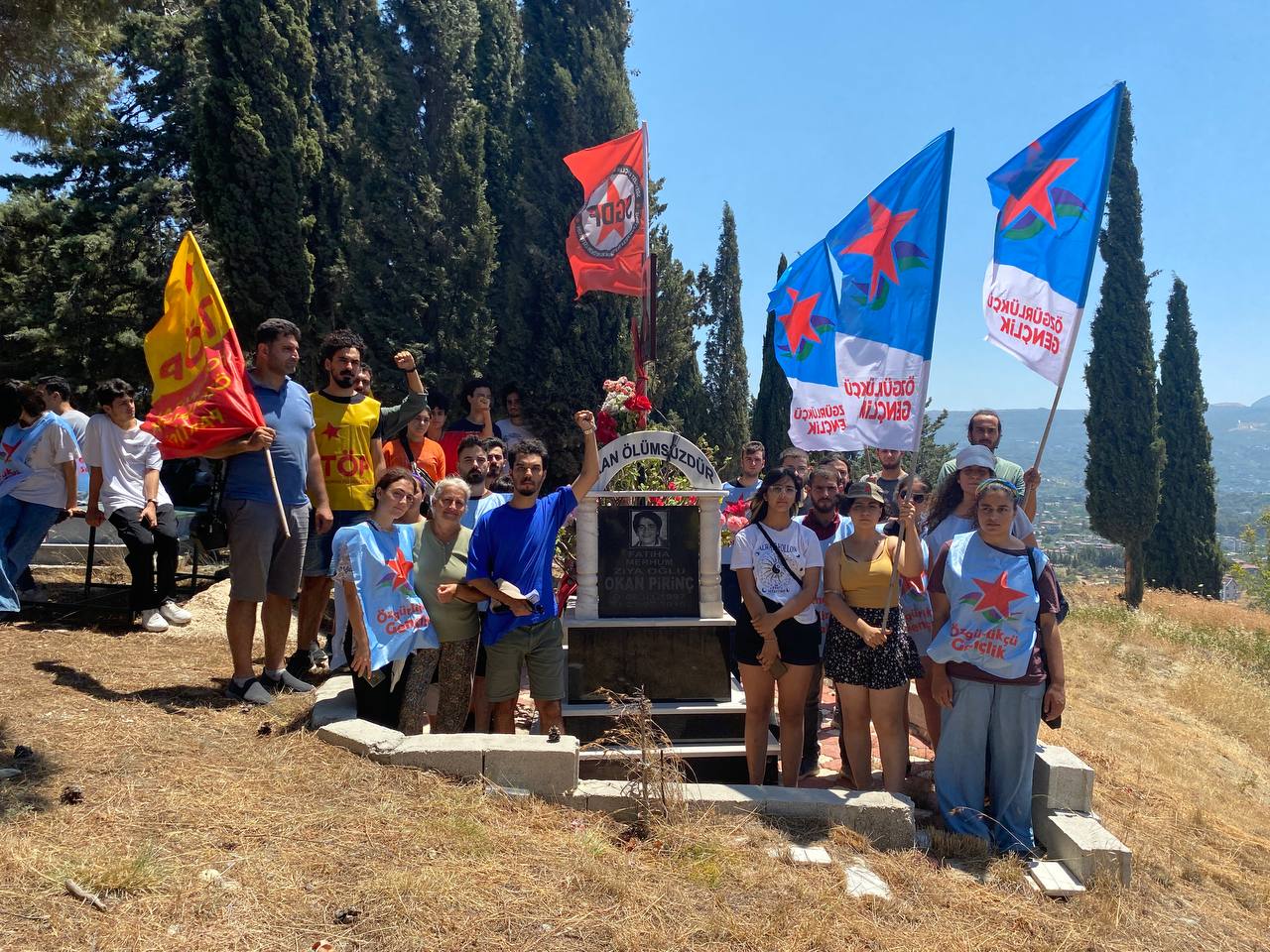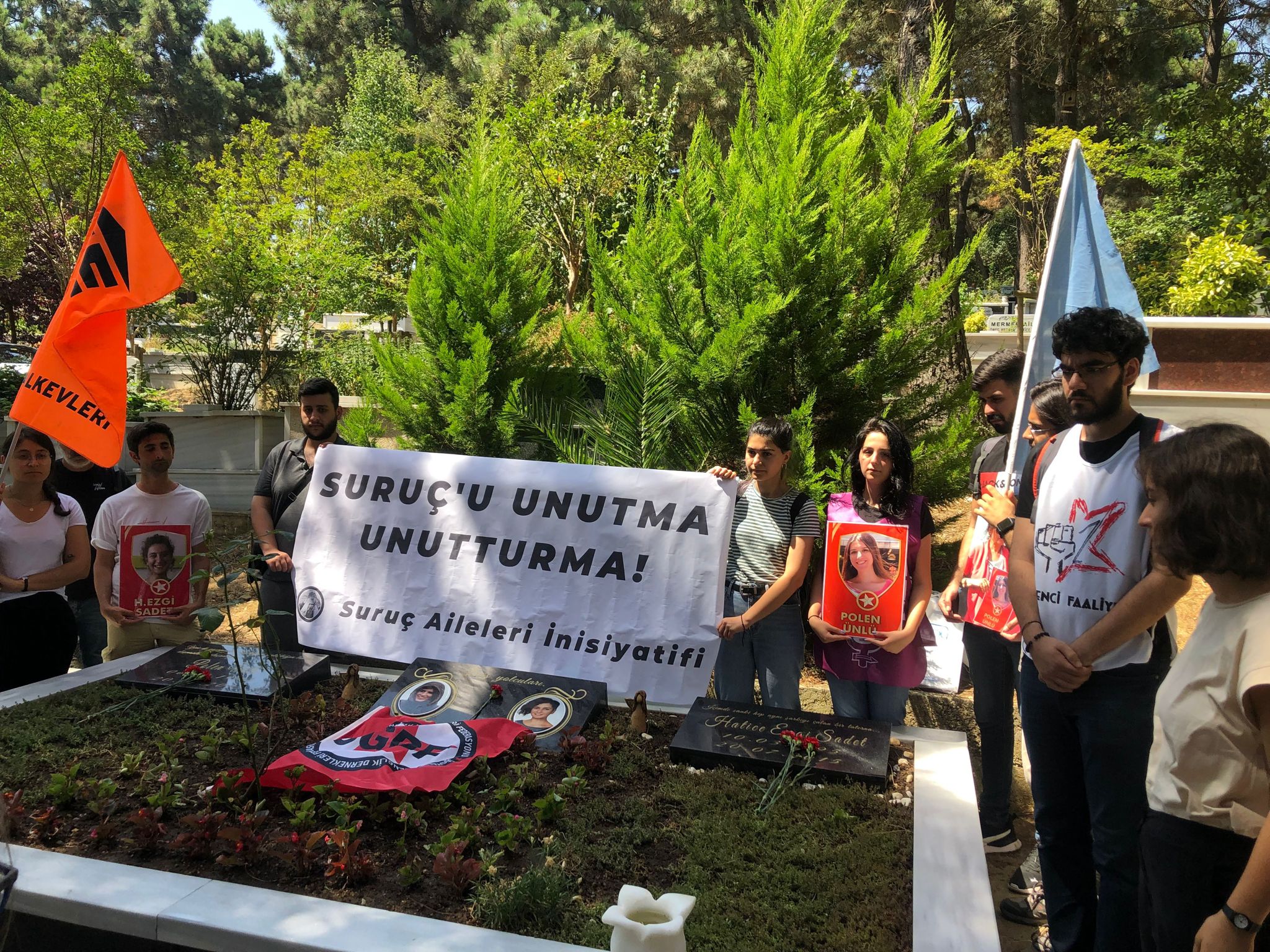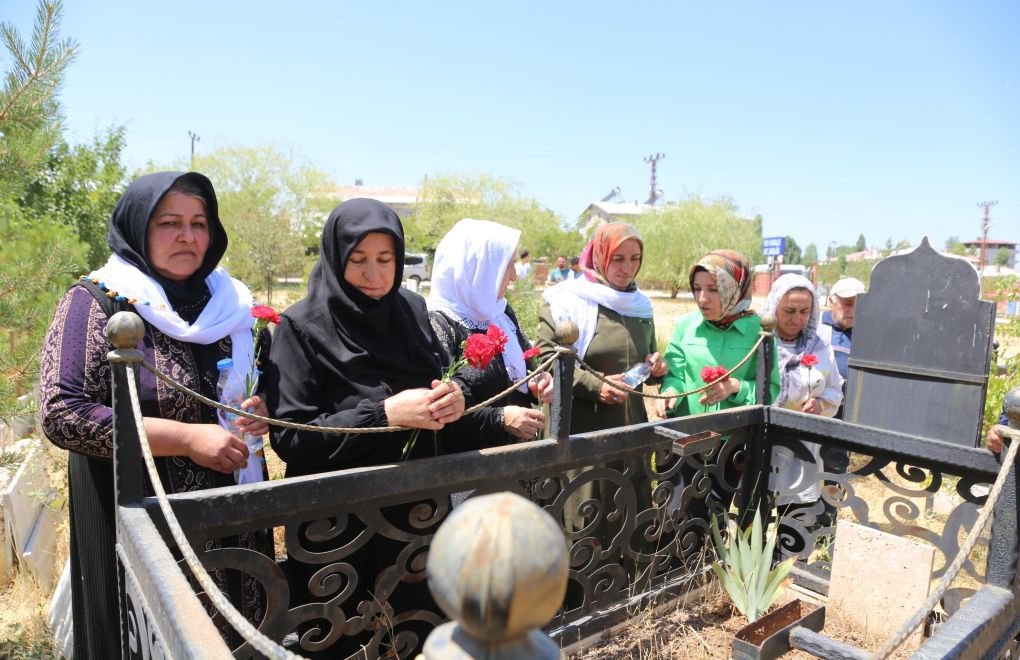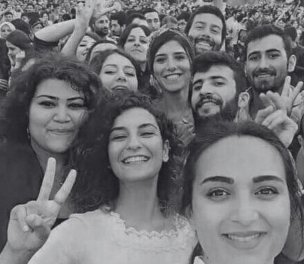Photos: MA
Click to read the article in Turkish
Commemoration events were held in Suruç, Urfa, to mark the 8th anniversary of the ISIS bombing that claimed the lives of 33 young individuals and wounded more than 100 others in 2015.
The bombing had occurred when members of the Socialist Youth Associations Federation (SGDF) gathered in the border town as part of their campaign to deliver toys to children in Kobanî, a Kurdish town located on the Syrian side of the border.
The solemn gatherings took place at the Amara Cultural Center, where the massacre occurred, and at the cemeteries where the killed people were buried across the country.

The Suruç Families Initiative led the memorial program, which brought together members of Green Left Party, the Peoples' Democratic Party (HDP), civil society and legal organizations, political party members, and a large number of people.
Reflecting on the incident, Senem Nur Pektaş, a member of the SGDF, spoke about the dreams they had shared 8 years ago when they had gathered, vowing to rebuild Kobanî, which had endured an invasion attempt by ISIS at the time. "They cruelly took our friends away from us here. They wanted to leave our dreams unfinished. But by killing them, they couldn't stop this dream. Eight years later, we still proclaim freedom for the Kurdish nation."
Soner Çiçek, one of the wounded during the bombing, said "they intended the bury our dreams here, but instead, our ideas have flourished here."

Ferit Şenyaşar, a Green Left MP representing Urfa, expressed the ongoing pain and frustration that justice had not yet been served after eight years. He lamented that instead of holding the perpetrators accountable, the families of the victims were being prosecuted, even facing arrests for merely commemorating the loss of their loved ones.
Police denied entry to the cemetery
After the memorial, a group attempted to visit the graves of Kasım Deprem and Osman Çiçek at the Suruç Primary Cemetery, but they were denied entry by the police, who cited it as a sacred place where no events could take place. In response, the crowd voiced their objections and made statements in front of the cemetery gate.
The remembrance events extended beyond Suruç to other cities where lives were lost. In Van, Muş, Diyarbakır, Dersim, İstanbul, Hatay, and Mardin, fallen individuals were also honored.
The bombing and the trialUpon the call of the Socialist Youth Associations Federation (SGDF), around 300 young people came together in Suruç in Turkey's southeastern province of Urfa on July 20, 2015. They were there to bring toys and humanitarian aid to the Kurdish town of Kobanî in northern Syria. While they were in front of the Amara Cultural Center for a statement for the press, a suicide bomb attack was carried out. Thirty-three people lost their lives and more than 100 were wounded. ISIS operative Şeyh Abdurrahman Alagöz was identified to have carried out the bomb attack. A confidentiality order was imposed on the file on July 23, 2015 because "the examination of the documents in the file would jeopardize the purpose of the investigation." Filed by the Şanlıurfa Chief Public Prosecutor's Office 18 months after the massacre, the indictment demanded that three defendants, one of whom was arrested, be given life sentences aggravated for 104 times each. Yakup Şahin, one of the defendants, was arrested as a suspect. According to the indictment, Deniz Büyükçelebi and İlhami Ballı, the other two defendants, were in Syria. The lawsuit filed into the Suruç Massacre started 21 months after the incident at the Şanlıurfa 5th Heavy Penal Court on May 4, 2017. The only defendant of the case who was not a fugitive did not attend the hearing. In the final hearing of the case filed against the public officials on January 9, 2017, Mehmet Yapalıal, the then district security director of Suruç, was fined 7,500 lira for "neglect of duty and misconduct in office." The court ruled that he shall pay the fine in 12 installments. On October 22, 2021, the only defendant under arrest was sentenced to aggravated life imprisonment 34 times, as well as 1,890 years in prison. |
(AÖ/VK)





